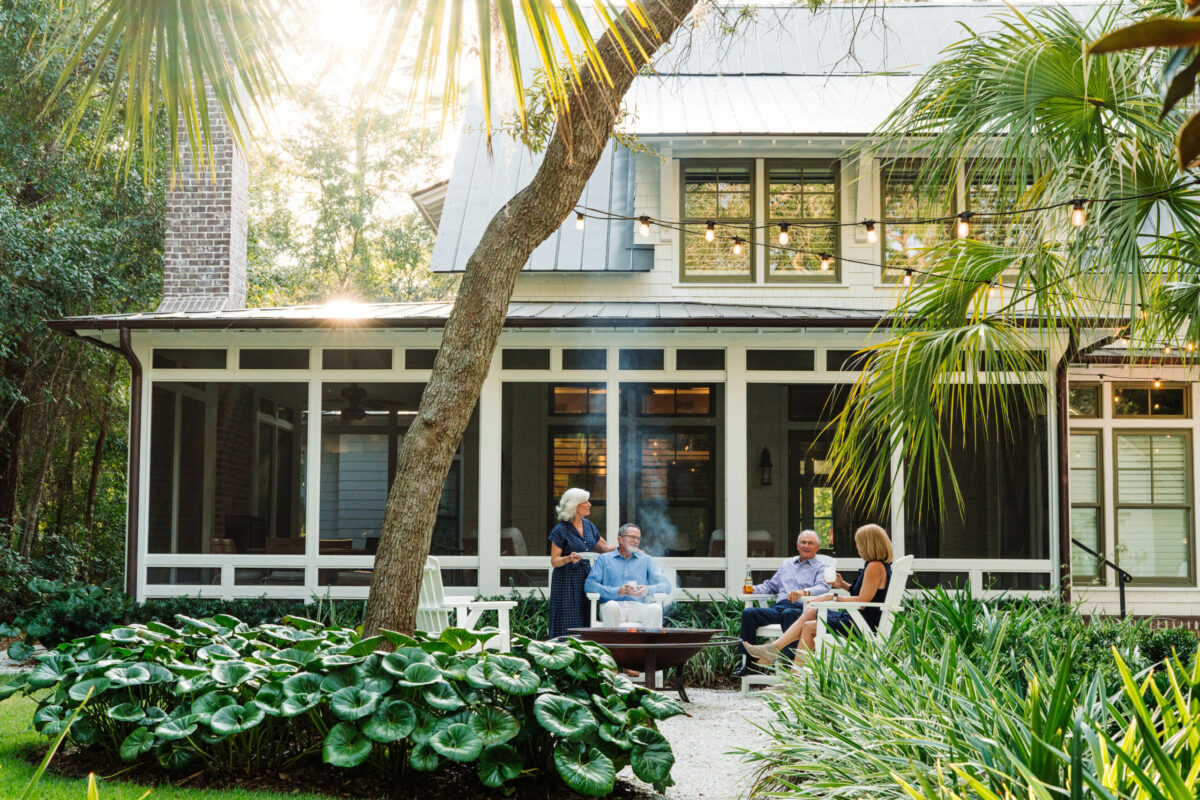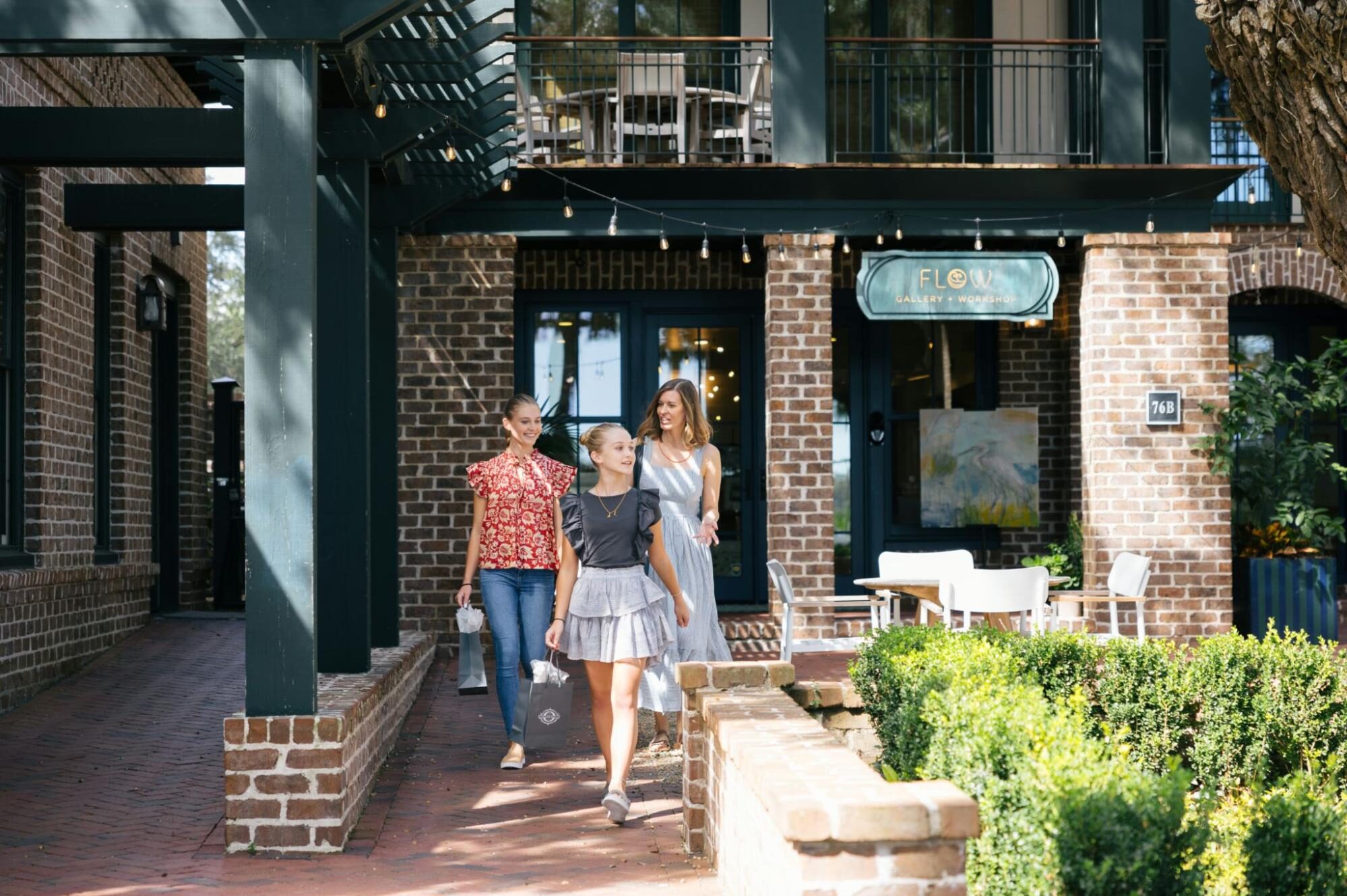Palmetto Bluff Real Estate Company Sales Office
Office Hours
Monday-Friday 9am - 5pm
Saturday 9am - 4pm
Sunday 12 - 4pm
Saturday 9am - 4pm
Sunday 12 - 4pm
Written by: Courtney Hampson | Photography by: Krisztian Lonyai
An emergency room administrator walks away from a six-figure salary for a six-dollar-an-hour gig in a kitchen. After a decade in health care and despite the lucrative career trajectory, Matt Wallace’s heart was pointing him in another direction. So, he left the hospital behind and began a 60-mile commute to Athens, Georgia, and to Farm 255. There, the farm-to-table movement was in full bloom, and Wallace was hungry—for culinary skills and knowledge.
“At Farm 255, I learned how to take care of things. Every employee had to work on the farm at least once a month. Your pay was what you picked.” From there, he headed to Woodfire Grill in Atlanta, where owner/chef Kevin Gillespie’s Top Chef star was just starting to sparkle. At Woodfire, Wallace learned technique—how to cut a fish, how to season, and, more importantly, the difference between season and spice. “I also learned that showing up early and staying late gains you favor,” Wallace said.
From Atlanta, Wallace’s tour de Georgia continued in Augusta, where, among other things, he was responsible for Mercedes’ catering during the Masters, no small feat. Eventually, he made his way to Hilton Head and Clayton Rollison’s Lucky Rooster, a busy tourist-driven spot where he learned “how to serve 300 people in four and a half hours.” A few culinary consulting jobs followed as Wallace learned the business side of restaurants, every stop on his journey providing valuable lessons that brought him to today, where he stands behind the bar in his own restaurant tucked tidily into a 900-square-foot space.

Visionary land planner Mark Permar reflects on Palmetto Bluff's rich history and its enduring connection to the land. With Anson on the horizon, the legacy of designing with nature lives on.How did you first get involved with Palmetto Bluff? I believe it was ...

Explore Available Listings with Room For the Whole Family At Palmetto Bluff, life moves at the pace of the tides; slow enough to savor, yet rich with moments worth sharing. And when it comes to welcoming the people you love most, the right home makes all the ...

Real Estate in Bluffton, SC: Trends, Updates, and Insights The first half of 2025 has been nothing short of remarkable for Palmetto Bluff Real Estate Company, with sales volume, transaction count, and market share setting a strong pace for the year ahead. As ...

Enhancing Coastal Living With Lowcountry Landscaping Trends The Lowcountry lies along the southeastern coast of the United States, a region known for its breathtaking landscapes, rich history, and unique culture. From the charming streets of Charleston to the...

By Katie Epps, Palmetto Bluff Archaeologist Standing on the bluff that rises above the May River, gaze across the vast expanse of marsh and sky. This is a landscape virtually untouched by time. Imagine this vista in the eighteenth century, in the throes ...

The school year has officially begun, and the sound of school buses can be heard throughout the Lowcountry. As is true for much of South Carolina, Bluffton and the surrounding areas have experienced exceptional growth over the past 10 years, and so have the op...

As summer gives way to fall, Palmetto Bluff welcomes the season with a thoughtfully curated lineup of events that reflect the spirit of community and the beauty of the Lowcountry. For Club members, these gatherings are more than celebrations—they’re a signatur...

Tucked into the heart of the South Carolina Lowcountry, Palmetto Bluff is more than a destination—it’s a way of life. Spanning 20,000 acres of pristine marshes, winding rivers, and timeless Southern charm, the Bluff offers something for every type of traveler....

Tucked deep in the maritime forest and bordered by the headwaters of the May River, 11 Headwaters Road is one of the most private and secluded properties in Palmetto Bluff. Set on 24 acres within a gated enclave of just ten legacy estates, this seven-bedroom, ...

Two-Bedroom Homes in Palmetto Bluff: Small Spaces, Big Advantages At Palmetto Bluff, life moves at a more thoughtful pace, one centered around nature, community, and well-designed spaces that invite you to slow down and savor the moment. Within this disti...
Learn about the Palmetto Bluff Conservancy and how we keep the vision of our land in place.
On land or water, there is an ever-evolving variety of activities.
We do not attempt to independently verify the currency, completeness, accuracy or authenticity of the data contained herein. All area measurements and calculations are approximate and should be independently verified. Data may be subject to transcription and transmission errors. Accordingly, the data is provided on an “as is” “as available” basis only and may not reflect all real estate activity in the market”. © [2023] REsides, Inc. All rights reserved. Certain information contained herein is derived from information, which is the licensed property of, and copyrighted by, REsides, Inc.